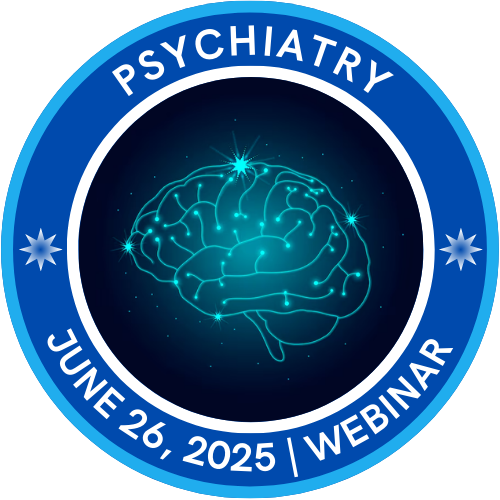Warm welcome to this Webinar on Psychiatry and Mental Disorders, taking place on June 26, 2025. It is an absolute privilege to have such a distinguished gathering of mental health professionals, researchers, educators, and advocates who are dedicated to advancing the understanding and treatment of mental health conditions. This webinar serves as a vital platform to explore the latest advancements, research, and innovative approaches in the area of psychiatry. Mental health is a cornerstone of overall well-being, and the work being done in this area the power to transform lives, families, and communities. Today, we will delve into critical topics such as emerging therapies, the role of technology in mental health care, and strategies to address the growing global burden of mental disorders.
Psychiatry and Mental Disorders a branch of medicine dedicated to the diagnosis, treatment, and prevention of mental disorders, which affect thoughts, emotions, and behavior. Mental disorders are complex conditions influenced by genetic, biological, psychological, and environmental factors. Common mental health conditions include depression, anxiety disorders, schizophrenia, bipolar disorder, post-traumatic stress disorder (PTSD), and obsessive-compulsive disorder (OCD). Advances in psychiatry have led to personalized treatments using a combination of psychotherapy, medication, and emerging technologies like AI-driven diagnostics and neurostimulation therapies. The growing area of neuropsychiatry explores the brain's role in mental illnesses, shedding light on how neurotransmitters and neural circuits influence mental health.

Confmeets is a leading webinar organizer that helps you explore the future challenges of your industry and find innovative solutions. We connect you with the best speakers from around the world who have the expertise and experience to inspire and guide you. We also facilitate ideation sessions where you can design and validate new ideas with your end users. Whether you need a keynote, a workshop, or a panel discussion, we can help you find the right speaker for the right audience at the right time.
The global Psychiatry and Mental disorders market is on a long-term growth trajectory, projected to surpass USD 596.4 billion by 2032 and potentially exceed USD 1 trillion by 2050 due to rapid technological advancements and increasing mental health awareness. AI-driven psychiatry, wearable mental health tech, precision medicine, and neuropsychiatric innovations like TMS, DBS, and brain-computer interfaces (BCI) will dominate the future landscape. North America will continue leading in investment, while Asia-Pacific will experience the fastest growth due to digital health adoption. By 2040-2050, breakthroughs in personalized psychiatry, AI-driven therapy bots, gene-based mental health treatments, and advanced neurostimulation will reshape the industry. However, stigma, psychiatrist shortages, treatment costs, and regulatory hurdles will persist as challenges. The future of psychiatry is digital, AI-integrated, and globally accessible, ensuring that by 2050, mental healthcare is more precise, preventive, and stigma-free